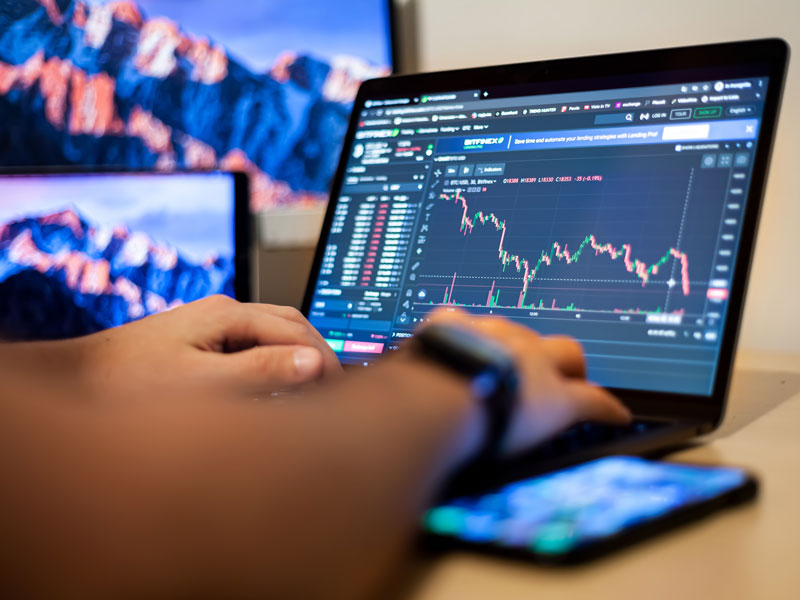
A Beginner’s Guide to Forex Trading
Forex trading, or foreign exchange trading, involves the buying and selling of currencies in the foreign exchange market. With a daily trading volume exceeding $6 trillion, it stands as one of the largest and most liquid financial markets in the world. For those just starting, navigating this complex landscape can seem daunting. However, with the right knowledge and tools, you can embark on a successful trading journey. In this guide, we will cover the basics of forex trading, including strategies, tips, and the importance of using the right forex trading beginner guide Trading App APK for your trading needs.
Understanding Forex Trading
At its core, forex trading involves the exchange of one currency for another. Currencies are traded in pairs, such as EUR/USD, where the first currency (EUR) is the base currency and the second currency (USD) is the quote currency. The value of a currency pair reflects how much of the quote currency is needed to purchase one unit of the base currency.
The forex market operates 24 hours a day, five days a week, allowing traders to respond swiftly to global economic developments. However, it’s crucial for beginners to understand that this market does not operate through a centralized exchange but rather through a network of banks, brokerages, and individual traders.
Getting Started with Forex Trading
Before you dive into forex trading, here are some essential steps to take:

- Educate Yourself: Knowledge is power in forex trading. Start with the basics—understand currency pairs, trading strategies, and market analysis techniques.
- Choose a Reliable Broker: A good broker will provide you with the necessary tools, platforms, and resources to trade effectively. Look for one that is well-regulated and offers a user-friendly interface.
- Open a Demo Account: Most brokers offer demo accounts where you can practice trading with virtual money. This is an excellent way to gain experience without the risk of losing real funds.
Types of Forex Analysis
To make informed trading decisions, you need to analyze the forex market. There are three main types of analysis:
- Technical Analysis: This involves analyzing price charts and using technical indicators to predict future price movements. Traders often look for patterns and trends in the market.
- Fundamental Analysis: This analysis focuses on economic indicators, news releases, and geopolitical events that can influence currency prices. Understanding the macroeconomic landscape is crucial for successful trading.
- Sentiment Analysis: This approach gauges the mood of the market, reflecting how traders feel about a particular currency pair. Sentiment can often be measured through various indicators or surveys.
Developing a Trading Strategy
A well-defined trading strategy is essential for success in forex trading. Here are some key components to consider when developing your strategy:
- Define Your Goals: Are you looking for short-term gains or long-term investments? Your approach will largely depend on your financial goals.
- Risk Management: It’s crucial to have a plan for managing risk. Decide on your risk tolerance level, and use stop-loss orders to minimize potential losses.
- Stay Informed: Keep abreast of market news and events that could impact currency prices. Continuous learning will enhance your decision-making skills.
- Backtest Your Strategy: Before committing real money, backtest your strategy using historical data to gauge its effectiveness.

Common Trading Strategies
Here are a few popular trading strategies that beginners might consider:
- Scalping: This involves making numerous small trades throughout the day to capitalize on minor price movements. It requires a focused and disciplined approach.
- Day Trading: Day traders open and close their positions within the same trading session to take advantage of short-term market fluctuations.
- Swing Trading: Swing traders hold positions for several days or weeks, aiming to profit from expected price changes.
- Position Trading: This long-term strategy involves holding onto trades for months or years, relying on fundamental analysis to make informed decisions.
Emotional Discipline in Trading
Forex trading can be an emotional rollercoaster. Managing your emotions is crucial for maintaining a clear head while trading. Fear and greed can lead to impulsive decisions, resulting in substantial losses. Establishing discipline will help you stick to your trading plan and manage your decisions based on logic rather than emotions.
Conclusion
Forex trading is an exciting and potentially lucrative venture, but it requires careful planning, education, and discipline. By following the steps outlined in this guide, you’ll be better prepared to navigate the complexities of the forex market. Always remember to start with a demo account, stay informed, and continuously refine your trading strategy. With patience and perseverance, you can work your way towards becoming a successful forex trader. Good luck on your journey!


لا تعليق